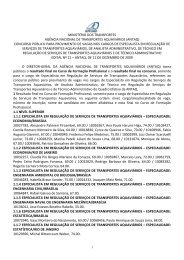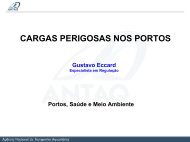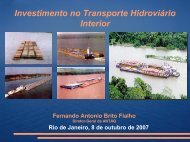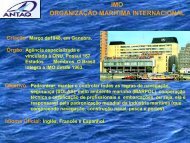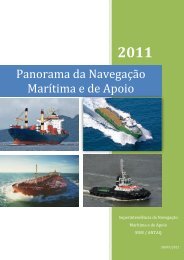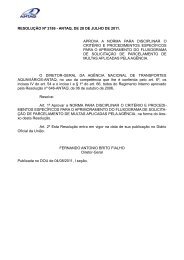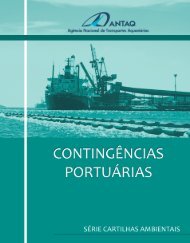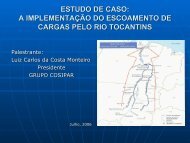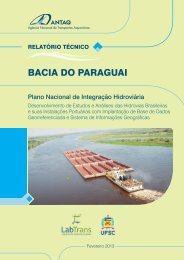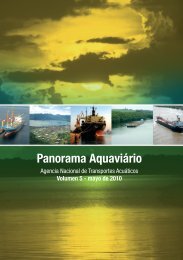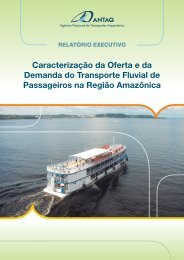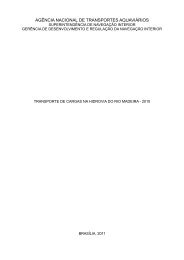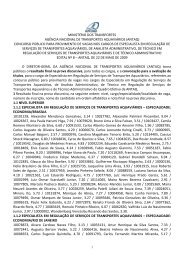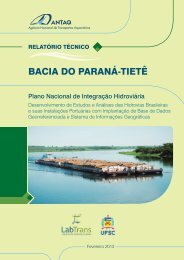Waterway Panorama - Antaq
Waterway Panorama - Antaq
Waterway Panorama - Antaq
You also want an ePaper? Increase the reach of your titles
YUMPU automatically turns print PDFs into web optimized ePapers that Google loves.
Environmental governance analysis<br />
Currently, solid waste production may be<br />
considered a major environmental impact<br />
of port activities. Such waste may be generated<br />
by the port operation itself (operational<br />
waste) or by ships (crew).<br />
In order to minimize the impacts caused by<br />
waste, there are several international and national<br />
regulations. Brazil has signed the International<br />
Convention for the Prevention of Pollution<br />
from Ships (MARPOL 73/78). Annex 5 dictates<br />
rules for the prevention of pollution by garbage<br />
from ships.<br />
Internally, Law 9,966/2000 consolidates the<br />
internalization of principles of MARPOL 73/78.<br />
According to Article 5 of the Law, all organized<br />
ports, port facilities, and platforms, as well as their<br />
support facilities, shall mandatorily have facilities<br />
or adequate means to receive and process various<br />
types of waste, and combat pollution in compliance<br />
with rules and criteria established by the<br />
relevant environmental authority.<br />
In order to receive waste from ships, there are<br />
some basic rules: ships should deliver their waste<br />
at waste reception facilities before leaving the<br />
port (properly segregated, packaged, and<br />
sealed); they should also give notice of the waste<br />
to be discharged (quantity, quality, and reception<br />
facilities) and pay a fee required to cover the<br />
costs of the reception facilities.<br />
ANVISA, alongside the VIGIAGRO, has its own<br />
regulations to deal with the matter within their respective<br />
areas.<br />
The National Agency for <strong>Waterway</strong> Transportation<br />
(ANTAQ) also plays an important role to<br />
establish rules and standards of quality to port activities,<br />
including environmental rules. Moreover,<br />
it represents Brazil before international navigation<br />
agencies, such as the International Maritime Organization<br />
(IMO), in conventions, agreements<br />
and treaties on waterway transportation.<br />
In this sense, ANTAQ been working to define<br />
the real roles of diverse stakeholders involved in<br />
organized ports regarding the generation of<br />
waste in port areas.<br />
61



